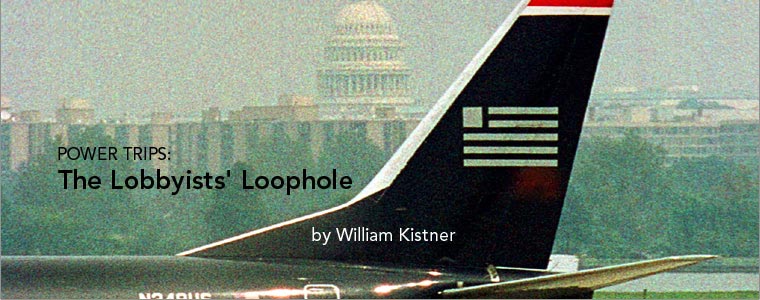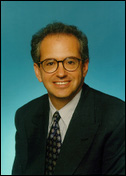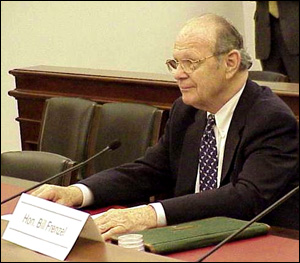 |
 | ||||||||||||||
| ||||||||||||||
 | ||||||||||||||
|
There is a simple idea behind the House and Senate ethics rules that govern congressional travel: the trips are supposed to be educational experiences, not lobbying opportunities. Lobbyists aren't allowed to pay for travel. However, these professional agenda pushers are exploiting loopholes and working around these rules.
A study released today calls many of those outside groups into question. It finds that 123 registered lobbyists sat on the boards of 60 charitable non-profit organizations that sponsored congressional trips. Between 2000 and mid 2004, the groups spent more than a combined $4 million sponsoring at least 850 trips. In some cases, these organizations have been set up expressly to fund congressional travel. And while lobbyists aren't allowed to write the checks for airplane tickets, dinners, and hotel rooms, they can pour money into these charitable non-profit organizations. They get access to Capitol Hill powerbrokers, and a tax write-off. "Lobbying organizations have found ways," says Ornstein, "sometimes boldly by directly funding trips, other times by channeling or laundering the money through non-profits to get members of Congress to places they want them to visit. But also so they can have large amounts of uninterrupted time with those members."
"I think having lobbyists in any way involved in these trips - it seems to me that that really compromises a member of Congress if that happens," says former Senator Dick Clark, who has run Aspen's travel program for more than 20 years. Just down from the Aspen Institute on the list of biggest spending travel sponsors is the Ripon Educational Fund. It takes a much different stand on lobbyists. Six out of nine board members of the Ripon Educational Fund are registered lobbyists. The group allows lobbyists to help pay for and attend a policy conference for hundreds of participants held in Europe every year. For last year's conference in Hungary, the Fund covered over $80,000 in travel, food and lodging expenses for nine Congressmen and their wives. In 2003, a five day conference in England cost the Ripon Educational Fund $1.3 million, according to the Fund's tax returns.
"I don't want to put down the idea that no business discussions took place, because I'm sure they did," says Frenzel. "But on the other hand, these are pretty high-class people. They have lots of opportunities to lobby in Washington. ... We didn't feel we were corrupting anybody." Frenzel says one of the key organizers of the Ripon Fund's trips is a business consultant, lobbyist and long- time Ripon board member named Richard Kessler. Kessler's activities offer a window into how some of these non-profits have become another tool for professional lobbyists. Internal tobacco company documents shed light on the cozy relationship between the Ripon Fund and Phillip Morris. In 1999, the company wasn't on Kessler's long list of clients, at least not yet. That winter, Kessler had a conversation with a lobbyist who reported to the company's federal tobacco team. In addition to years of experience lobbying for big corporate clients in pharmaceuticals, energy, and other industries, Kessler had another thing to offer Phillip Morris. The memo reads, "Discussed PM [Philip Morris] sponsorship with Rick Kessler of the Ripon Society and how PM can get more bang for our bucks. Good exchange with Kessler. Promising ideas." (See the entire memo) Two years later, Richard Kessler's lobbying firm began working for Philip Morris. Kessler and his lobbying associates were paid $180,000 that year to lobby for tobacco legislation Philip Morris supported. In 2001, Kessler wrote to the company's chief lobbyist about ways to win over the support of moderate Republicans in Congress. Kessler writes that one way is to "interest outside moderate organization, e.g. Mainstreet or Ripon."
"I think for the Congressmen who are the beneficiaries of the trips to the tune of hundreds of thousands of dollars over a multi-year period, the public ought to know where the money is coming from, who's providing that. There should be some kind of change in the kind of disclosure that occurs when they have Congressmen or Congresswoman in front of their name," says Rick Cohen, the executive director of the National Committee for Responsive Philanthropy, a non-profit public interest group in Washington. But not all agree that more disclosure is necessary. "Private organizations do have a right to a measure privacy," says Jan Baran, a Washington lawyer who represents business groups and a campaign finance expert. "I'm not sure that by allowing an organization to support trips, the price of doing so should be to divulge everything." Marketplace spoke with the chairman of the Ripon Educational Fund last fall. At the time, he said the fund would consider making more information about their trips public. Nine months later, the fund, like dozens of other non-profit travel sponsors, remains a financial black box that the public can't look into. The Ripon Fund has put off its annual conference in Europe this summer while it evaluates its policies. Meanwhile, a bill in the House would further restriction lobbyists involvement in Congressional travel. But Trevor Potter of the Reform Institute says Congress already has a hard time policing existing rules. "I think Congress has real difficulty monitoring itself," says Potter . "There's always going to be pressure from the majority party, whichever party that is, to sweep things under the rug." | ||||||||||||||
 | ||||||||||||||
|
Power Trips: The Lobbyists' Loophole was produced for American Public Media's Marketplace and Marketplace Morning Report by American RadioWorks in conjunction with The Center for Public Integrity and the Medill News Service. Major funding for American RadioWorks comes from the Corporation for Public Broadcasting. This report was produced with support from the Economist Magazine. Power Trips: The Lobbyists' Loophole was produced by William Kistner and edited by Chris Farrell. Additional reporting by Steve Henn, research assistance from Alex McRae. For American RadioWorks, the senior producer is Sasha Aslanian, project manager is Misha Quill, assistant producer is Ellen Guettler, web producer is Ochen Kaylan. The executive editor is Stephen Smith, and the executive producer is Bill Buzenberg. For Marketplace, the editor is Nate Dimeo, senior producer is Celeste Wesson and executive producer is J. J. Yore. |

